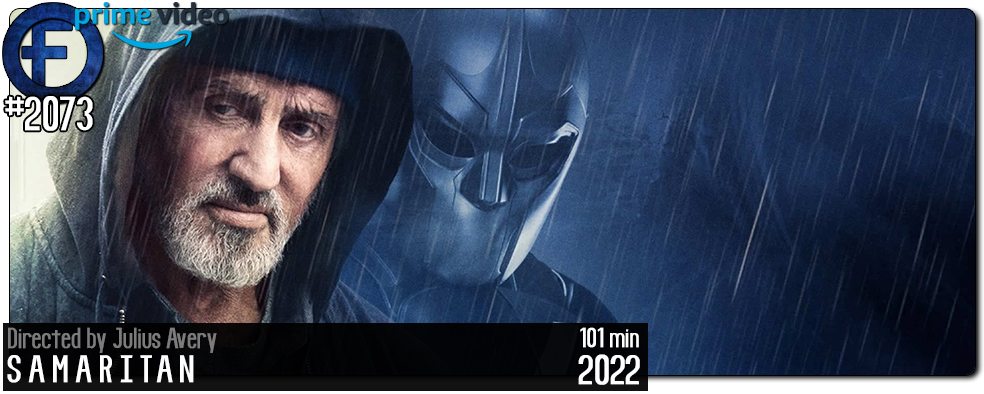Movie Review – Samaritan
Principal Cast : Sylvester Stallone, Javon “Wanna” Walton, Pilou Asbæk, Dascha Polanco, Moises Arias, Martin Starr, Sophia Tatum, Jared Odrick, Henry G Sanders, Shameik Moore.
Synopsis: A young boy learns that a superhero who was thought to have gone missing after an epic battle twenty years ago may in fact still be around.
********
The only thing more disappointing than having watched Samaritan is realising there’s 90-odd minutes of my life I’ll never get back. It’s a superhero film (of sorts) were you to run the screenplay, cinematography, music, acting and direction through a rain-soaked quarry populated by Viking stonemasons, a film hewn from the very stone for which the film’s primary setting – Granite City – obtains its incessantly dour tone. Casting Sylvester Stallone as an ageing retired superhuman vigilante seems on paper to be a home-run dissection of the comic book subgenre, but you’d be surprised by just how badly Aussie director Julius Avery (Overlord) fumbles the ball. I found the film reminiscent of the recent Rendel, a dark and foreboding subgenre piece that had similar developmental and narrative failings to overcome; sadly, Samaritan’s uninviting visual aesthetic and monochrome character work offer little to recommend it among the swathe of competing entries you might find elsewhere.
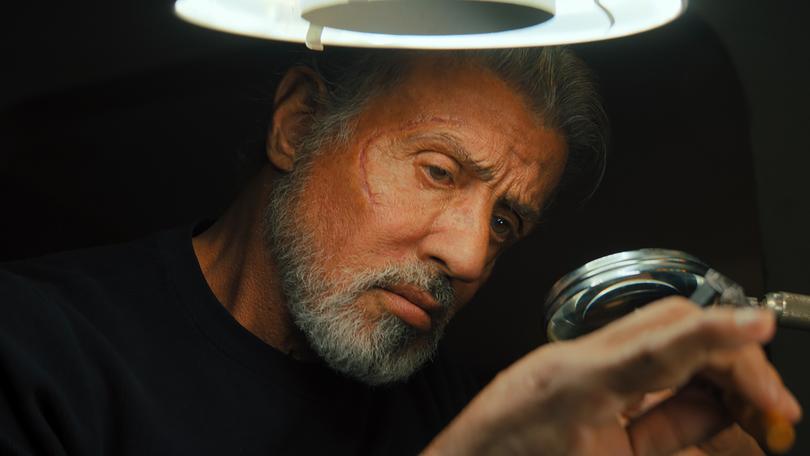
Stallone plays the relatively anonymous Joe Smith, a resident of the run-down and crime-ridden Granite City who wanders the streets looking for spare parts to hock and make a buck. He is befriended by local kid Sam Cleary (Javon “Wanna” Walton – Euphoria) after the older man saves him from some street thugs; Sam, starts to believe the incredibly strong Joe might actually be the long-thought-dead Samaritan, a vigilante superhuman who died battling his evil twin brother, Nemesis, in a power-plant explosion years before. The city’s resident gangster, Cyrus (Pilou Asbæk) sends his goons to find a powerful weapon to use in terrorising the city – a hand-made sledgehammer bearing all of Nemesis’ hatred for his brother – which brings him into direct conflict with Joe and Sam, with the fate of Granite City in the balance.
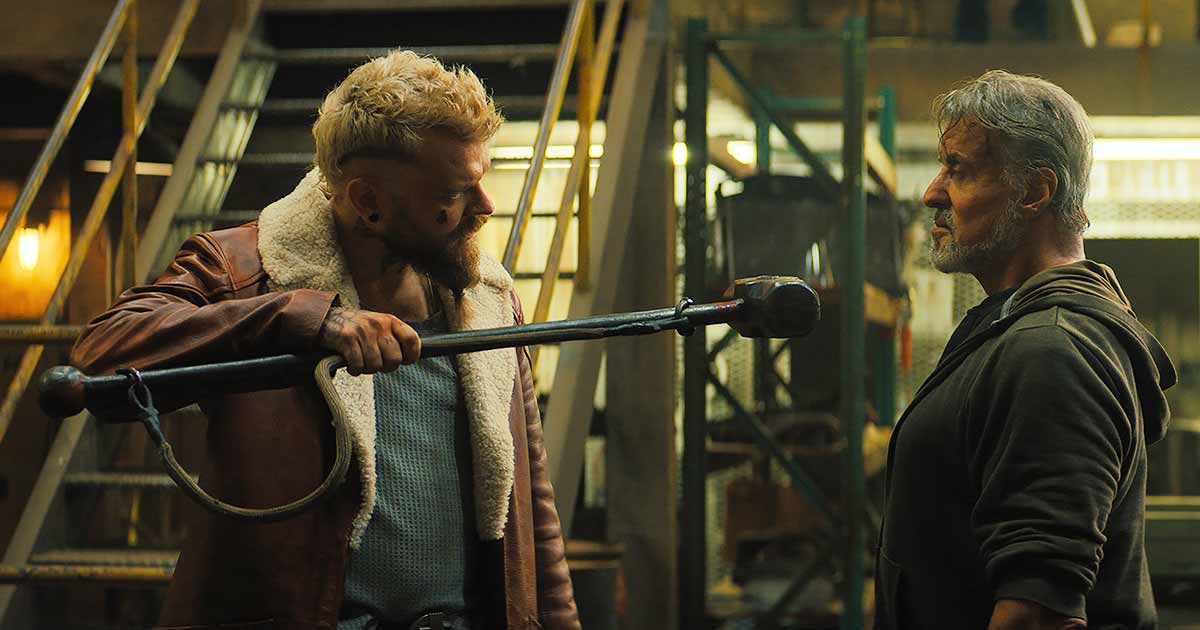
Samaritan is a film one might best describe as “ugly”. It’s a specifically friendless film, a muscularly atonal action thriller bogged down by comprehensively inadequate character development. The production designs seems to be a cross between Verhoeven’s RoboCop and Kurt Wimmer’s Equilibrium, a concrete dystopian present-adjacent world in which complete social collapse appears to have occurred and violence rules the night. This in and of itself isn’t bad, but rather it’s the inability of Julius Avery to utilise this setting with any conviction. It helps not that the screenplay is both generic and cliched up the jaxie, twisting comic-book tropes into a malignancy of combinative element that never cohese. The film’s writer is Bragi F Schut, one of the co-creators of the graphic novel upon which Samaritan is based, which would otherwise led credibility to the film’s tone, gives Stallone’s superhuman role adequate punch in the early stages, offering a compelling human mystery as to why, if he is indeed the venerated hero of old, he dropped off the face of the world into obscurity. The central mystery of Samaritan’s disappearance forms the crux of the film’s plot arc, and it plays largely as predicted by the cartoonish opening sequence (which, if I’m honest, was pretty darn effective), but everything else about the film’s screenplay is, frankly pretty terrible.
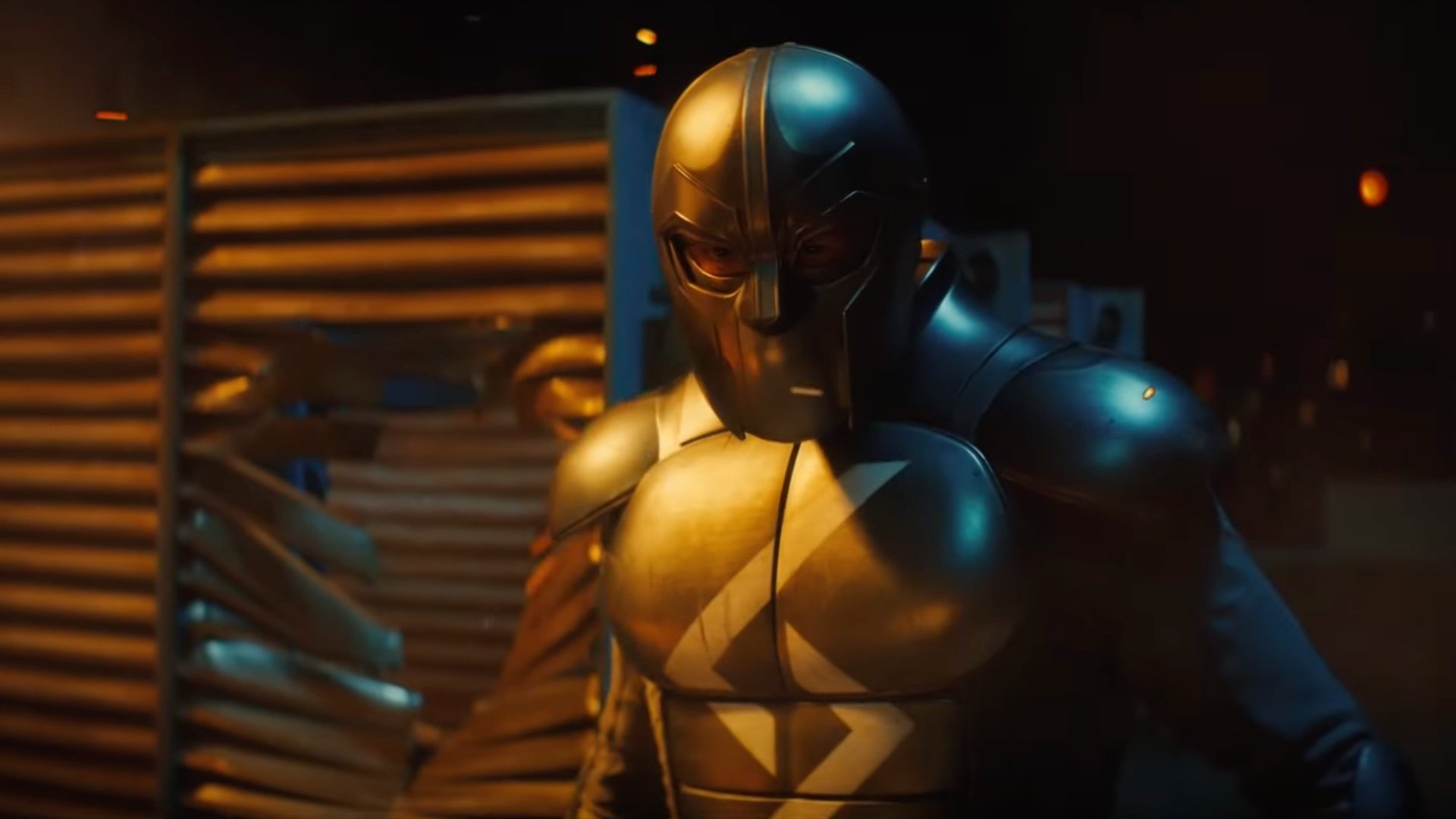
Stallone, barely stepping away from the same monosyllabic performative glaring he gave us in the last couple of Rambo films, adequately handles the action of the movie’s opening two acts with a glint of humour amid the concrete infrastructure of Granite City. Stallone’s co-star, Javon Walton, is inscrutably precocious as the young Sam, daring to dream that the guy who lives in the apartment across the way might just be the long missing Samaritan. Walton’s work as the primary protagonist in Samaritan’s re-emergence is solid, but lacking in freeform enthusiasm; I can almost see in my mind’s eye how the character might come across on the printed page, but the film asks him to make some pretty dumb decisions and you can’t help but feel that he almost deserves to get his ass kicked a few times. Perennial screen villain Pilou Asbæk (Game of Thrones, Ghost & The Shell, Lucy) reunites with his Overlord director to portray a completely over-the-top antagonist who has virtually no redeeming features, and surrounds him with a nameless cast of inane henchmen offering little by way of depth to the conflict present in the movie. It’s a rote “I’m a sadistic asshole who wants to watch the world burn” villain type – or at least that’s how I saw it – and Asbæk is capable of so much more.

Samaritan’s uneven tone comes undone in the climactic third act. Whereas the film’s first half or so seems grounded in real-world physics and minor fantastical abilities, Samaritan’s climax is a go-for-broke brain-fade of dismal action, nonsensical character choices, dire visual effects and very much a Rambo-esque body-count that rises and rises and rises. Which isn’t a bad thing in and of itself, at least for comic-book films, but the work done to make all this pay off is limited at best, resulting in a tone-deaf orgy of violence and sadism that turns a grimy slog through Granite City’s tortured streetscape into an absolute clusterfuck of action idiocy. You’re telling me that Cyrus, a Joker-like villain who normally hangs about with at best a half dozen kooky weirdo henchmen for the majority of the film, suddenly has access to what seems to be an entire army of militant heavyweights all armed with automatic weaponry for no real reason? Gah! The facile visual effects employed by the film are hidden by Avery’s competent direction in the first half, but once Stallone’s superhuman Joe Smith begins to really flex his muscles, the seams split and the gaping cracks in the conspicuously lower-budget production start to show. The film ekes out a rock-n-roll soundtrack and kinetic action visuals but they really do personify the epitome of “sound and fury signifying nothing.” It’s like an Expendables movie with all the fun and energy drained completely, leaving naught but a lifeless husk.
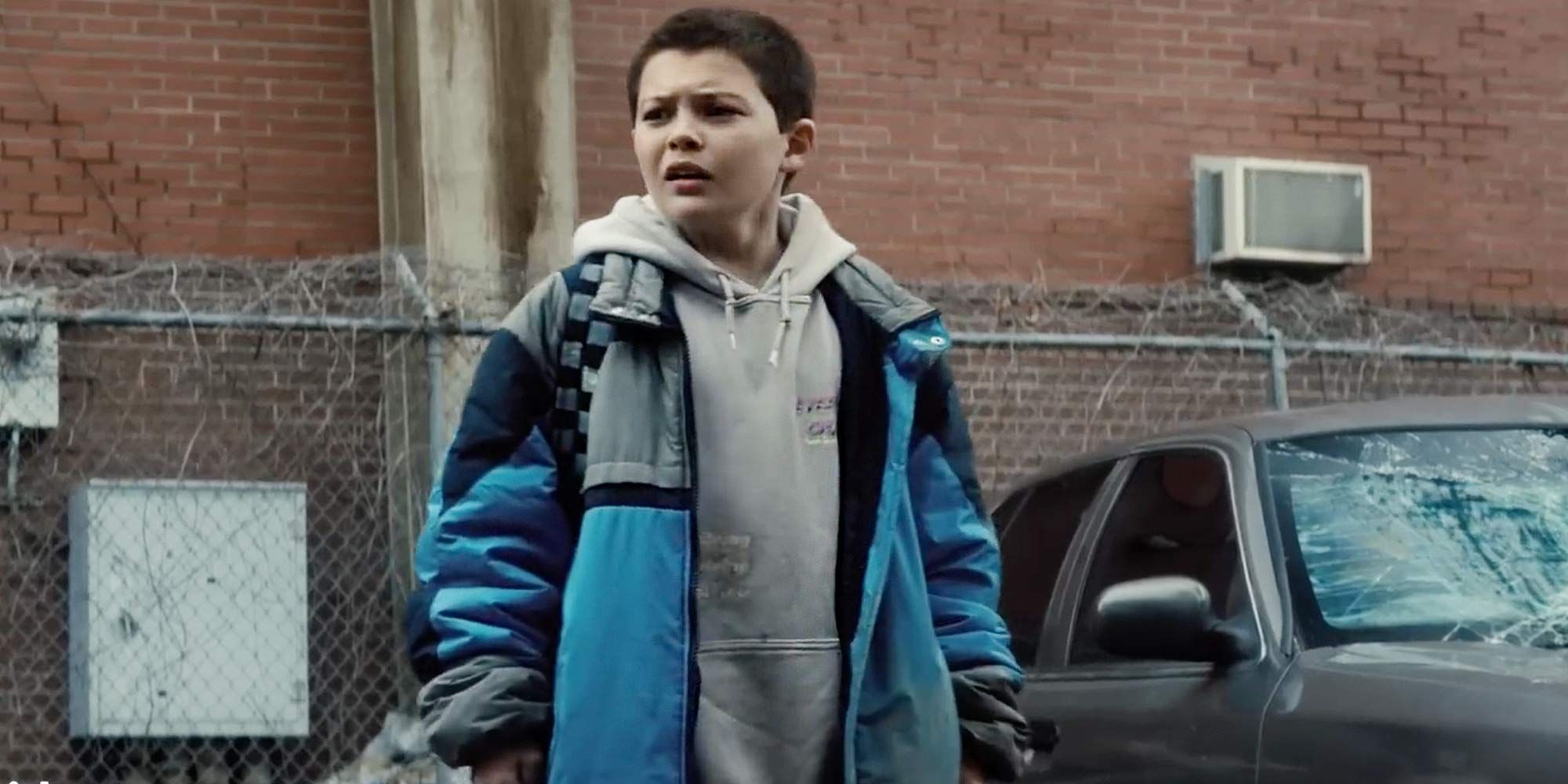
Watching Samaritan was an absolute chore. It’s a laboured, tiresome affair offering very few thrills, clumsy action beats and buries a promising premise beneath an acidic visual aesthetic best described as offensive. Poor storytelling choices and hopelessly generic characters, especially the central leads, leave Samaritan stranded in the copious rain, groping for any sense of connection with an audience searching for meaning. Even the variously qualified plot twists cannot overcome this turgid, overwrought and decidedly lowbrow action opus; if I was a poor, beaten traveller lying on the side of the road this is one Samaritan I’d scream at to just pass on by.

